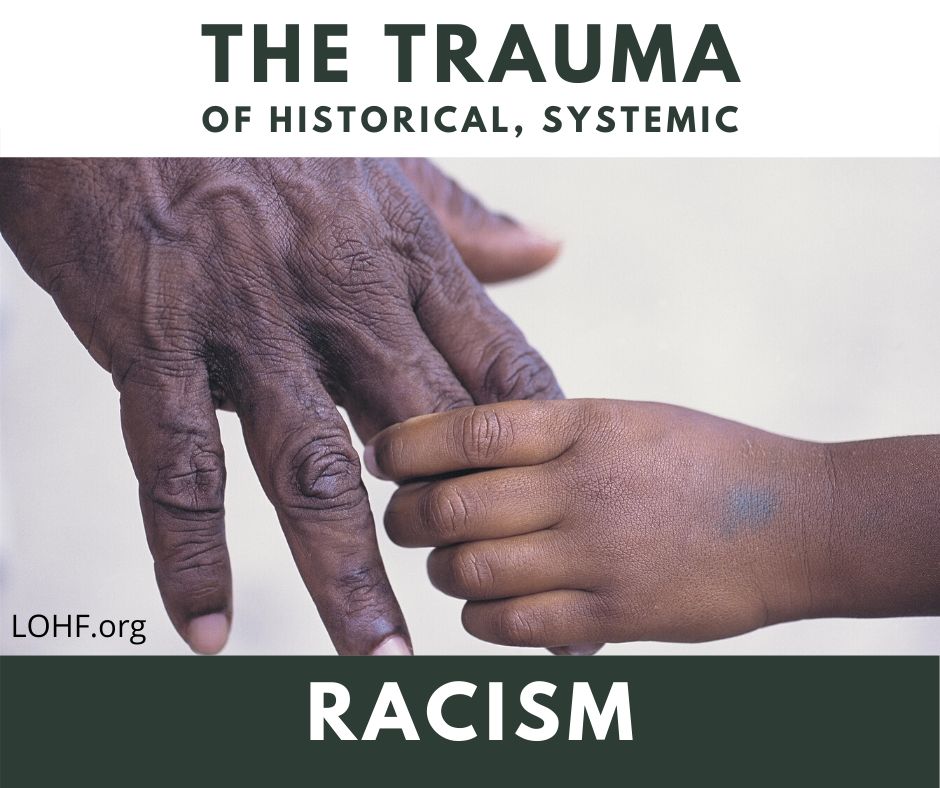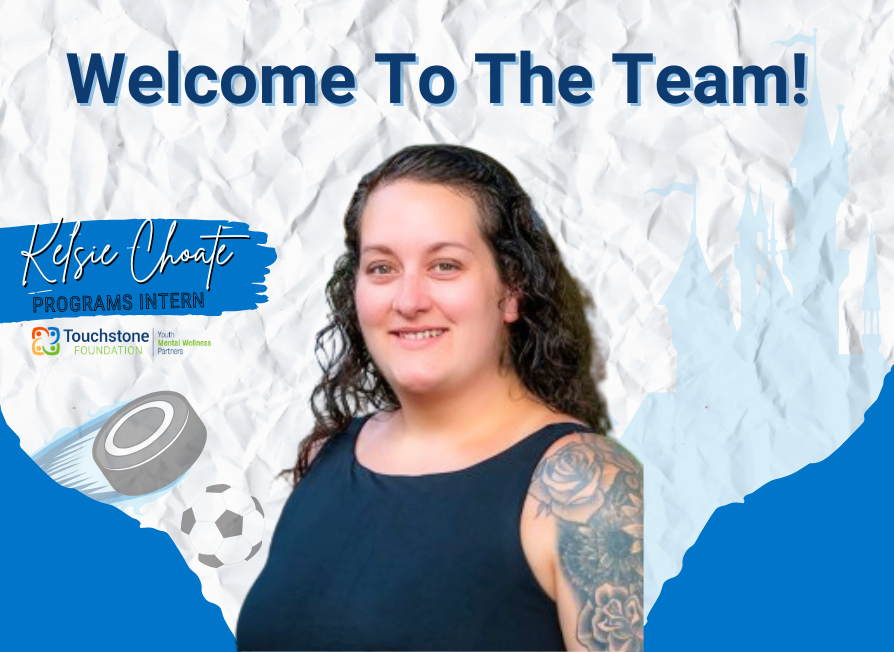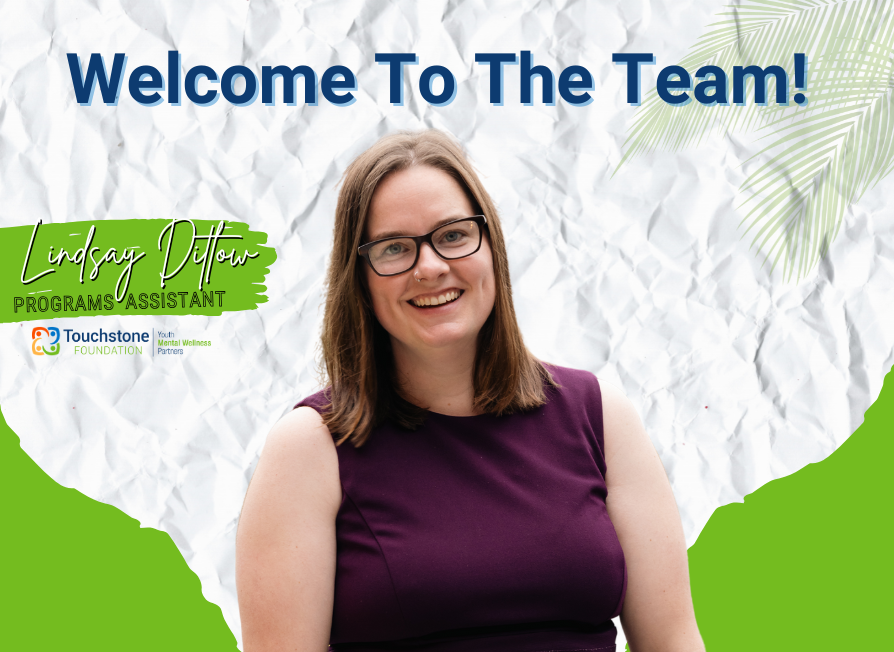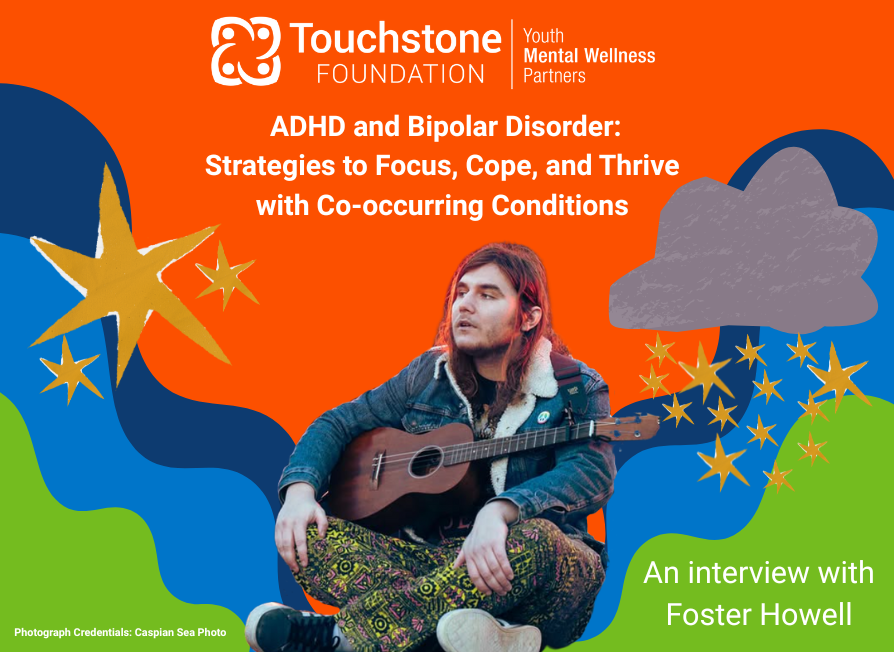
Black Lives Matter. We need to do better, because our friends and neighbors deserve better. All human beings deserve dignity and respect. Our community is hurting, our nation is hurting, and this hurt has been festering far too long.
The historical trauma of systemic racism harms the mental and physical health of children, and it’s affects are seen well into adulthood. The trauma of racism that black and brown persons face daily is held in bodies and minds. This trauma often leads to stress, anxiety, depression, and other mental healthcare needs. It can pass from mother to child, and generation to generation. For more than 400 years, our friends and neighbors of color have endured this trauma. We recommend the documentary Broken Places, which follows families through the generational impact of such trauma.
Our efforts are personal
At LOHF, our mission is to help our youth and children experience mental well-being. We value diversity, equity, and inclusion in our funding decisions, recognizing the need repair the mental trauma and resulting health effects of generations of racism. It means that our board, volunteers, and staff have been empathetically listening, hearing, reflecting, and pausing to examine ourselves. We don’t have the answers. But we support community collaboration that fosters mental healthcare solutions that address historic, systemic racism.
We are a diverse group of parents, neighbors, and professionals working toward this community goal while navigating the challenges personally. Programs Manager Shanece Bowman expressed what many of us are feeling:
“I am heartbroken with what is taken place in the world today. I looked at my 6-year-old son yesterday and realized that now, more than ever, it is imperative to have difficult conversations with our children regarding systematic racism, and racism in general. He is growing up in a society where the color of his skin can determine his future.
‘As a mother, I can admit I don’t know where to begin the conversation, but the reality is it needs to happen now, and there are resources available to guide that imperative conversation. It is important to not be afraid to ask our children how they are feeling about what is happening and what they experience. It starts with your mindset and ends with your actions!”
What we are doing
Our community is strong, brave, and creative. With open hearts and minds, we can listen to each other, learn from one another, and create the healthy, vibrant community we want for our children and grandchildren. To make that dream a reality, we must work together advocating for policy change, while providing funds to support efforts led by black and brown leaders in our community. At LOHF, we make this investment by improving access to behavioral healthcare, and strengthening the behavioral healthcare workforce to meet demand, always with intention toward diversity, equity, and inclusion.
If you or your organization need support, we offer:
- Recording of a recent LOHF “Self-Care Check-in for Helping Professionals.” It includes a guided meditation to identify hurt and pain in our bodies, breathe, and begin to heal.
- LOHF Mental Health Copay Assistance to make mental healthcare appointments affordable.
- Local programs that improve access to mental healthcare may apply for an LOHF grant. Applications for the next grant cycle are due September 1.
Talking to youth and children about racism
Here are some helps having these conversations:
- Our friends at the Lancaster Public Library have curated a list of anti-racism books for children, teens, and adults.
- embracerace.org helps parents to “raise a generation of children who are thoughtful, informed, and brave about race.” They provide myriad resources such as Teaching and Talking to Kids About Race, and How Do I make Sure I’m Not Raising the Next Amy Cooper.




